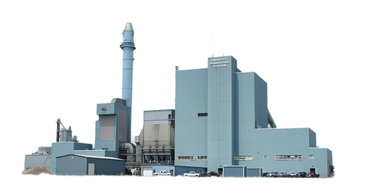Pathway to Progress

On September 17, 1982, the Michigan South Central Power Agency, a municipally owned utility formed to serve five member communities, opened the doors of its brand new, 55-megawatt coal-fired electric generating station in Litchfield, Michigan. Over the next three days, citizens from Clinton, Coldwater, Hillsdale, Marshall, and Union City passed through these doors to view the machinery and meet the people who would soon be supplying power to light their homes, streets, offices and schools for generations to come. By mid-November, the plant went on line with the connection of its main generator to a 138,000- volt transmission system. On December 3, after a successful 24-hour test run at maximum capacity, the plant was declared commercially available. While not exactly "the shot heard around the world," the event enabled MSCPA's five member communities to end their wholesale power purchase agreements with outside utilities and start down the road to energy self-sufficiency.
This was the dream of the Agency's founding fathers, all managers of municipal electric utilities, who envisioned the day when their community's economic growth, jobs, and school budgets would no longer be dependent on an uncertain energy market to provide reasonably priced electric power.
The Litchfield plant, later named in honor of original Board Chairman James Endicott, was the main instrument of that dream. Before construction of the Endicott plant, community-owned diesel and hydro generators were the only source of local power, supplying from three to thirty percent of total power requirements. The gap was filled with power purchased from two in-state investor-owned utilities, Consumer's Energy and Detroit Edison.
Over the past several years, significant changes occurred in the energy industry that have resulted in the decommissioning of this power plant. Following considerable staff analysis, independent consulting and engineering studies, MSCPA determined it was no longer in their members’ best interests to continue to operate the small coal fired generator.
Still, MSCPA continues to meet the needs of its industrial, commercial, and residential customers at rates generally competitive with or less than investor-owned or cooperative utilities.
The availability of a ready supply of affordable electric power has given the Agency's member municipalities the security and freedom to chart their own civic destinies. For the public, being served by an electric utility in which they are shareholders, run by a Board and officers drawn from among their neighbors, means that local energy policy will reflect their interests and concerns. This joint ownership adds to the already close connection that citizens commonly feel for one another–and their sense that these are special places in which to live, work, and raise a family.
Whatever lies ahead, the past is prologue, and MSCPA's record in meeting previous challenges inspires confidence in the future.
This was the dream of the Agency's founding fathers, all managers of municipal electric utilities, who envisioned the day when their community's economic growth, jobs, and school budgets would no longer be dependent on an uncertain energy market to provide reasonably priced electric power.
The Litchfield plant, later named in honor of original Board Chairman James Endicott, was the main instrument of that dream. Before construction of the Endicott plant, community-owned diesel and hydro generators were the only source of local power, supplying from three to thirty percent of total power requirements. The gap was filled with power purchased from two in-state investor-owned utilities, Consumer's Energy and Detroit Edison.
Over the past several years, significant changes occurred in the energy industry that have resulted in the decommissioning of this power plant. Following considerable staff analysis, independent consulting and engineering studies, MSCPA determined it was no longer in their members’ best interests to continue to operate the small coal fired generator.
Still, MSCPA continues to meet the needs of its industrial, commercial, and residential customers at rates generally competitive with or less than investor-owned or cooperative utilities.
The availability of a ready supply of affordable electric power has given the Agency's member municipalities the security and freedom to chart their own civic destinies. For the public, being served by an electric utility in which they are shareholders, run by a Board and officers drawn from among their neighbors, means that local energy policy will reflect their interests and concerns. This joint ownership adds to the already close connection that citizens commonly feel for one another–and their sense that these are special places in which to live, work, and raise a family.
Whatever lies ahead, the past is prologue, and MSCPA's record in meeting previous challenges inspires confidence in the future.
